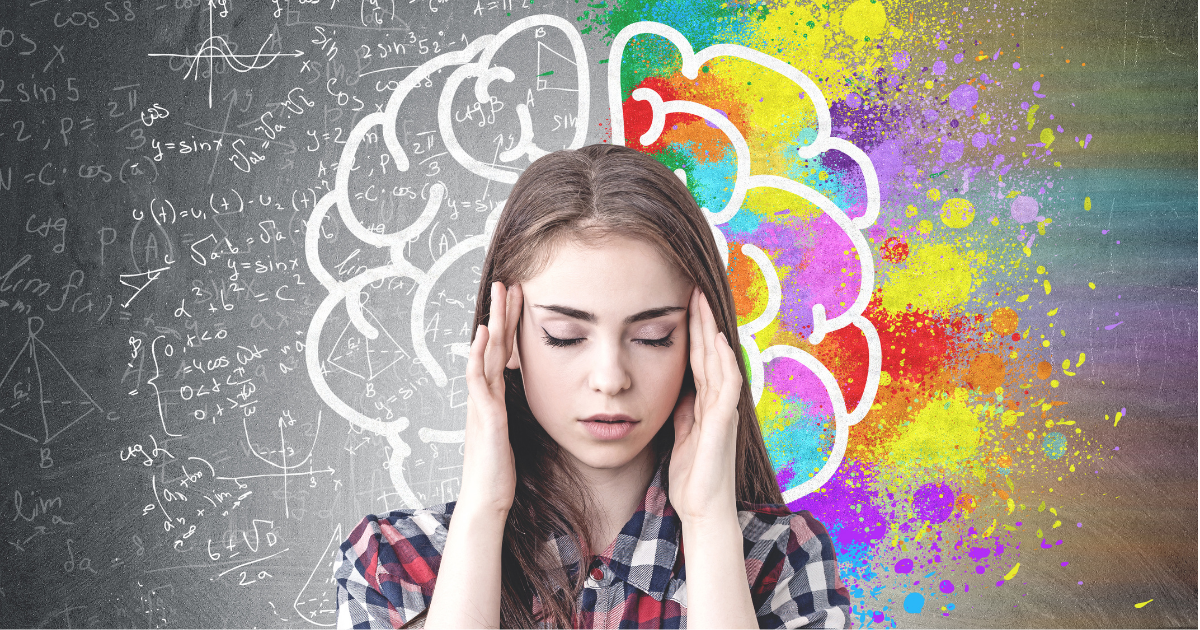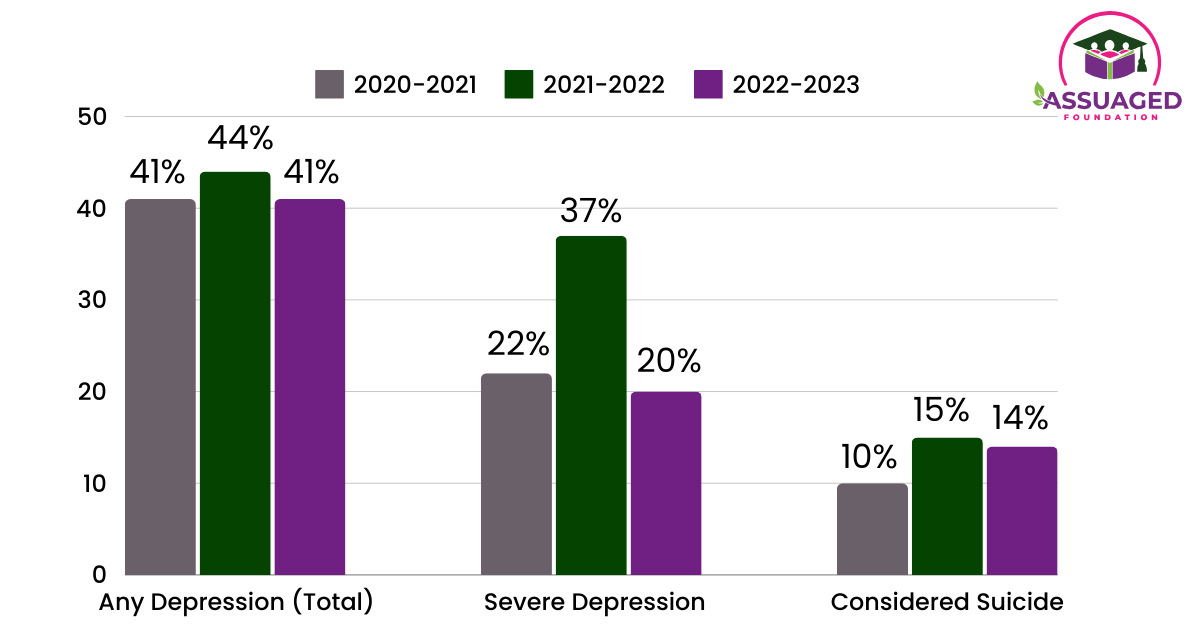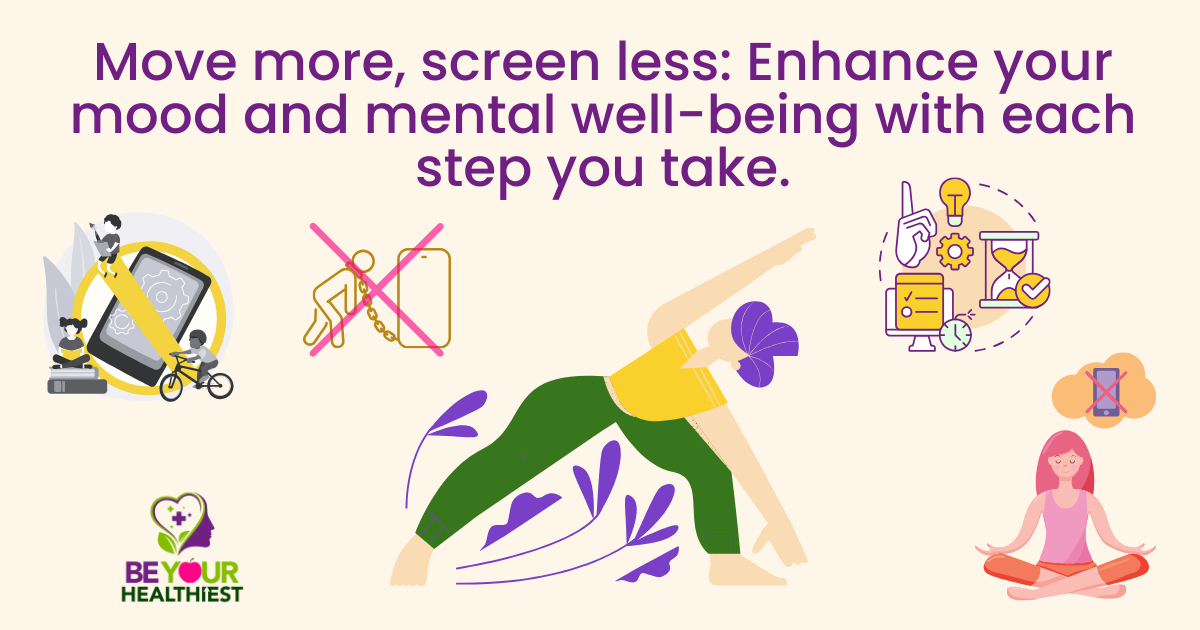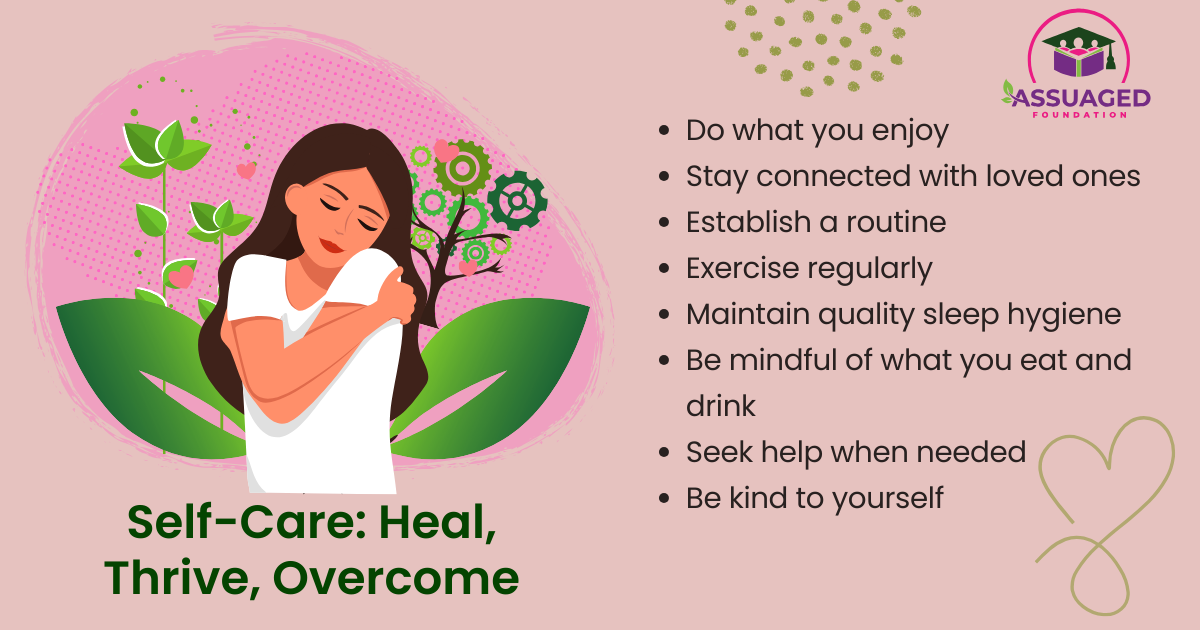Depression is one of the common mental health conditions that is the result of various factors such as chronic stress, genetic factors, and so many other causes.[1]
Depression Prevalence: A Global Health Concern
Depression is not just a phase—it's a pervasive health issue that has affected over 280 million people worldwide.[1] The alarm bells are deafening in the college demographic, where a combination of rising academic pressure, social challenges and pressures, and life transitions contribute to a higher vulnerability to this mental health condition.[2]
Depression has emerged as a prevalent mental health condition among college students in the USA as well.[2] Characterized by an enduring sense of desolation and a disinterest in daily activities, this condition doesn't discriminate by age or gender, affecting individuals across all demographics.
Hereupon, it has become a significant contributor to the global burden of disease.[1]

Understanding Depression
It's not merely the pressure of exams or the struggle of balancing a social life that leads to depression.
Depression is not a condition of circumstance alone but is deeply rooted in our biological makeup. It is a complex interplay between chronic stress and its biological impact on the body, where stress hormones like cortisol disrupt the delicate balance of neurotransmitters serotonin, norepinephrine, or dopamine in the central nervous system.[3]
It contributes to the development of depressive symptoms such as persistent feelings of sadness, poor concentration, low energy, changes in appetite, sleep pattern changes, loss of interest, and, in more severe cases, the intention of self-harm or suicide.[1] Symptoms vary by severity.[1]
College students are particularly susceptible due to the unique stressors associated with this life stage.[2] When this stress goes unaddressed, it can lead to severe consequences, including impaired cognitive function and isolation.[1]
A Closer Look at the Statistics
What is the extent of depression among college students, and why should we be alarmed?
Globally, depression affects approximately 280 million people (3.8%), with a notable rise in cases among those under 20.[1] An extensive survey involving 103,748 students for the academic year of 2020-2021 revealed that 41% were reported to have any symptoms of depression.[4] Among these, 22% of students experienced severe symptoms of depression, while 19% reported moderate symptoms, highlighting the scale of the crisis in higher education.[4]
The Healthy Minds Survey annual report included 96,000 U.S. college students from 133 campuses during the academic year of 2021-2022.[5] In the report, a staggering 44% of college students have reported symptoms of depression, and 37% reported having experienced anxiety.[5]
College students aged 18 and older are increasingly vulnerable to mental health problems in the United States.
Additionally, recent data for the academic year of 2022-2023 showed that 41% of U.S. college students have reported any symptoms of depression, while 20% reported severe depression.[6]
Based on these reports, the surging depression rates among college students over the years are even more evident.

Financial Stress and Mental Health
A notable 18% of students attribute their depressive symptoms to financial stress, suggesting a strong link between economic strain and mental well-being (2020-2021).[4] This is a stark reminder of the multifaceted nature of depression, where various social and personal factors converge.[1] [4]
Suicide: A Startling Consequence
Alarmingly, over 10% of college students have considered suicide in the academic year 2020-2021[4], and 15% considered suicide seriously in the academic year 2021-2022[5], followed by 14% in the academic year 2022-2023.[6] [7] Hence, marking it as the fourth leading cause of death in this demographic age group 15-29 years.[1]
The COVID-19 pandemic only intensified the depression prevalence, with depression rates tripling in the first year of the outbreak (2021).[8] A significant increase in depression and anxiety was noted during the pandemic, especially among students of color, who faced additional hurdles in accessing mental health resources (2021).[9]
Percentage of college students in the U.S. with symptoms of depression in three consecutive academic years

Source: Statista, American Institutes for Research[4] [5] [6]
[7]
Intervention Strategies for Mental Wellness
Recognizing the gravity of the situation, U.S. colleges have adopted various mental health policies.[10] Institutions must effectively implement more comprehensive mental health programs, suicide prevention policies, awareness campaigns, and wellness initiatives that resonate with students' needs.[10]
Colleges offer many support options to help students face challenges, including counseling, mental health services, peer support, cognitive-behavioral therapy (CBT), and wellness programs.[10]
CBT, in particular, is a crucial resource for managing depression.[11][12]Other effective ways include problem-solving therapy, interpersonal psychotherapy, behavioral activation, self-care, etc.[1]
Promoting Health and Wellness
Research has suggested that improving physical activity and reducing screen time correlate with lower depression rates and better sleep health for students.[13]
Encouraging students to engage in physical activity regularly can be an effective strategy for reducing depressive symptoms and improving sleep health—the importance of a balanced lifestyle in the fight against depression.[13]

How can colleges create an atmosphere that nurtures mental health?
Education and resources are essential. By integrating mental health into the classroom and providing targeted support, institutions can break down barriers and promote a culture of resilience practice and care.[14]
-
Integrating mental health awareness into the curriculum.
-
Providing workshops and seminars on coping strategies and resilience.
-
Accessibility to counseling with flexible hours and well-staffed centers.
-
Building a community of support: peer network and mentorship.
-
Organizing mind-body wellness activities.
-
Training staff in mental health first aid.
-
Fostering an atmosphere of diversity and inclusivity.
-
Providing specific support for minorities and international students, recognizing unique challenges they might face.
-
Strengthening crisis management resources and emergency support.
-
Regularly communicating with students about available mental health resources and encouraging research projects on mental health.
-
Collaborating with other institutions to share best practices and resources. [14]

Conclusion
The increasing prevalence of depression among college students calls for immediate and effective responses. It is crucial for higher education institutions to not only provide support but also actively promote mental health awareness.
Early screening and diagnosis of depressive symptoms can lead to timely interventions. By prioritizing these efforts, we can help alleviate the burden of depression and improve the overall quality of life for students.
Future research and public health initiatives must continue refining and expanding the available interventions, ensuring every student can thrive academically and personally.
If you're struggling, remember that help is available. Explore the mental health resources provided by your institution and community to learn about the support systems in place for depression prevention and intervention. It's crucial to seek help and remember that you are not alone.
Feel free to share your thoughts below! Thank you for taking the time to read this article.














